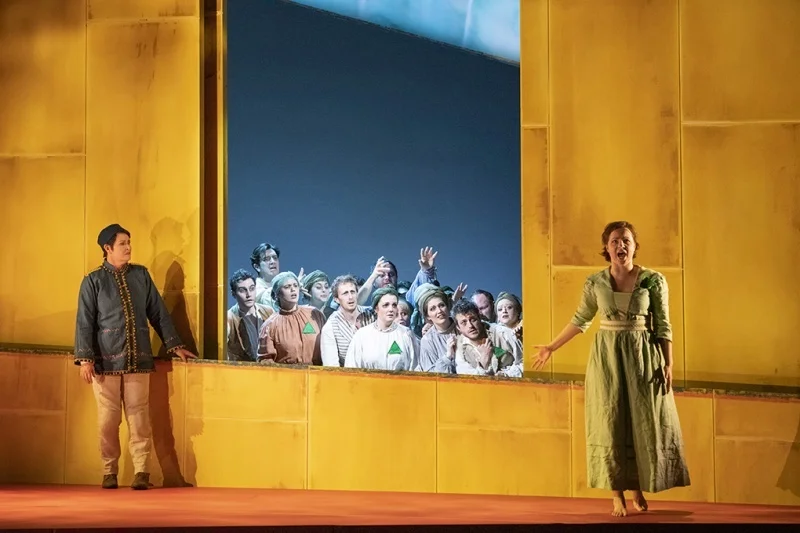THE LAVENDER HILL MOB AT THE ARTS THEATRE
What is it about the crime caper that made it such a feature of comedy in the post second world war era? There were so many of them - a gang of loveable incompetent chancers take a risk together. The target for the heist is normally huge. Think of Michael Caine in ‘The Italian Job’ possibly the very last of the English style jolly productions .”Hang on a minute lads, I’ve got a good idea’ he says the moment he views the gold bullion at the centre of the plot. And of course there was the eternally repeated dry cool of “ You were only meant to blow the bloody doors off’ as the entire vehicle explodes into smithereens. Somehow that relaxed confidence appealed to audiences - and made a star of Caine. But before then in films made at the Ealing studio ‘Two way Stretch’ and The Ladykillers and The Big Job made their money out of improbably gangs of men with a mission to be more than ordinary.
That appears to be the motive behind Henry Holland, the lead in The Lavender Hill Mob, a man among millions of unexceptional workers with a daily routine you could set your watch by. He works at the Bank of England and supervises the shipment of gold to its secure destination. But Miles Jupp as Henry sees a chance for a massive theft of millions of pounds of government funds and the Lavender Hill Mob is born - augmented by a couple of petty criminals and aided by an oddball artistic Pendlebury played by Justin Edwards.
The entire action shifts from its original film medium to the stage by a highly ingenious sequence of ‘play within a play.’ We join Henry in Rio de Janeiro, as he hands out money (turns out the proceeds from the bullion heist), to the fun loving crowd at the Embassy there. Guy Burgess as the laconic Farrow is about to arrest Holland but he joins in a last re-enactment of the entire planned theft before he is led away. Farrow even joins in, playing a policeman of course.
The ingenuity of this idea is brilliantly executed by a cast of gifted players who do manage the Impossible at times - that is to convince us we are in London and not a New Year’s Eve party in Brazil. But the suspension of disbelief is very brief. Yes the energy of the actors is breathtaking - as are the improvised car chases, the trip to Paris to fence the bullion now turned into souvenir statues of the Eiffel Tower, and the clever cunning of Henry Holland who evades capture. But much of the time we were all too aware this was a theatrical tour de force ,a kind of actory exercise which simply could not convince .
The capers were now amplified by staggering stage work and the languid insouciance of the always likeable Miles Jupp but this leap from film to stage is hard to sustain. Part of the charm - and indeed the tension - of the plot relied on London as a backdrop. It asks too much of an audience to re-imagine this .
The era of the comedy crime caper has gone. Was it the real life Great Train Robbery with an elusive Ronnie Biggs laying low in, yes, Brazil whilst the innocent engine driver was disabled for life, that did for the ‘fun’? Or had the post war escapism of the Ealing film faded into a new 50s realism - and a better more polished and convincing Hollywood world? Had the class stereotypes, subversive sexism and dislike of foreigners done for its appeal?.
The last time we saw Miles Jupp at the Arts was as David Tomlinson the actor, in a moving sincere and extraordinary play. This is not it.







